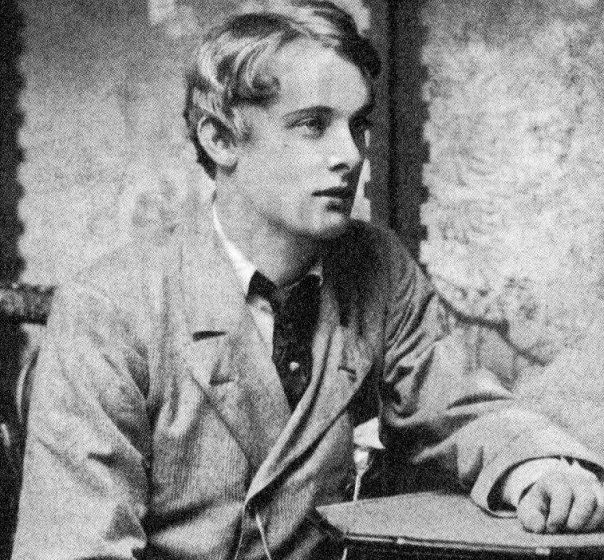LORD ALFRED DOUGLAS, British trust fund baby and dilettante, born; Forever known as “Bosie” to the world, the boy lover of Oscar Wilde, the son of the 8th Marquis of Queensberry, who was so enraged by his son’s cavorting with the notorious dandy that he couldn’t even spell the word properly when he labeled Wilde a [sic] “Somdomite.”
In 1891, Douglas met Oscar Wilde; they soon began an affair, though, according to Douglas, they never engaged in sodomy. Right. Though Douglas consented to be the lover of the older Wilde, he shared Wilde’s interest in younger partners. Of the two, Douglas was known for preferring schoolboys, while Wilde liked older teenagers and young men. When his father, Lord Queensberry, suspected that their liaison may have been more than a friendship, he began a public persecution of Wilde. In addition to invading the playwright’s home, Queensberry planned to throw rotten vegetablesat Wilde during the premiere of The Importance of Being Earnest. In 1894, the Robert Hichens novel The Green Carnation was published. Said to be based on the relationship of Wilde and Douglas, it would be one of the texts used against Wilde during his trials in 1895.
When Lord Drumlanrig (Douglas’ eldest brother and the heir to the marquessate of Queensberry) died in a suspicious hunting accident, rumors circulated that Drumlanrig had been having an affair with the Prime MInister, Lord Rosebery. As a result, Lord Queensberry began a crusade to save his youngest son.
That his life was ruined by the celebrated trials of his lover, Oscar Wilde is hardly debatable. Still, Bosie was as thoroughly unpleasant as a grown man as he was when he was young. A snob, an anti-Semite (Douglas translated The Protocols of the Elders of Zion in 1919, one of the first English language translations of that anti-Semitic work), and a bit of a liar too, Douglas, who never had to worry about money as do us lesser mortals, published tolerable poetry. Douglas’s 1892 poem “Two Loves”, which was used against Wilde at the latter’s trial, ends with the famous line that refers to homosexuality as “the love that dare not speak its name.” He went on to crank out reminiscences that vilified almost everyone from the Wilde circle, eventually married, and declared to the world that he had long ago thrown off his childhood vices. That the latter was a lie may be seen in San Steward’s indelible portrait of him in Chapters from an Autobiography.
